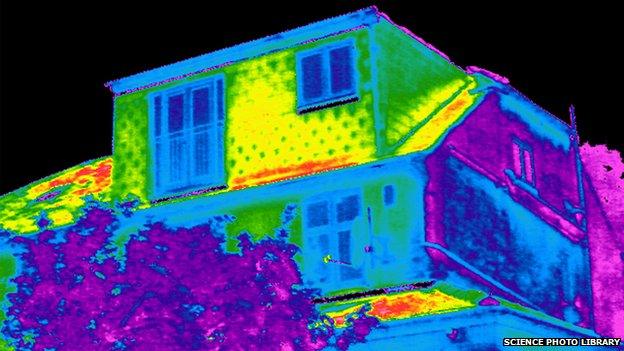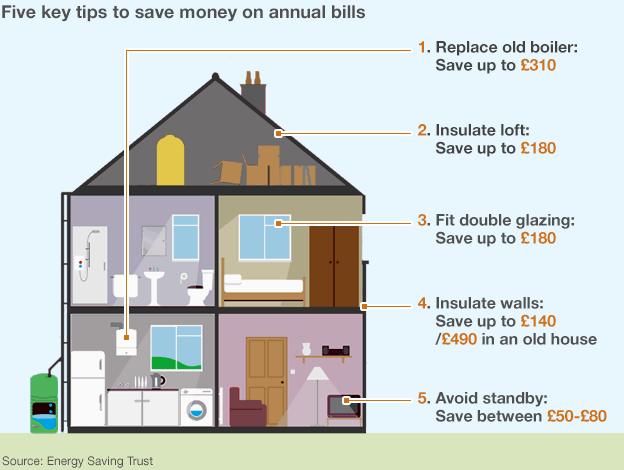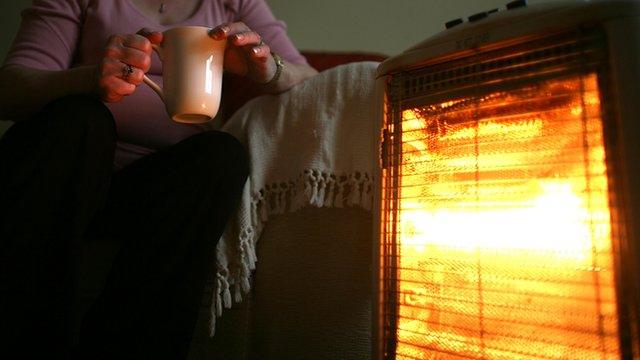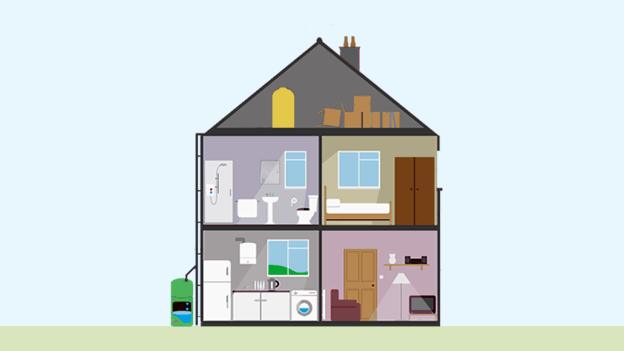'Identify people living in cold homes', says NICE
- Published

The guidance recommends insulating homes to guard against the cold in winter
Guidance on how to reduce deaths and illnesses among elderly people during the winter has been drawn up by the National Institute for Health and Care Excellence (NICE).
It wants doctors to identify people living in homes that are too cold, and and local authorities to provide insulation and heating services.
NICE says many deaths each winter in England and Wales are preventable.
Age UK called the recommendations very positive.
A consultation process on the NICE guidance runs until 25 July.
The draft NICE guidance, external covers people who are vulnerable to the cold, including those over 65, people with respiratory conditions such as children with asthma, and people with cardiovascular conditions.
Prof Mike Kelly, director of the Centre for Public Health at NICE, said their recommendations were relevant to normal winter temperatures below 6C - not just extreme cold weather.
He said: "Although most causes of death and illness vary throughout the seasons, there is a clear increase during the winter months.
"Around 24,000 additional people die during this time each year in England and Wales."
He said services already existed in some parts of the country to ensure people were warm enough at home, but they were "patchy".
"This lack of consistency makes it very difficult for professionals to know what support is available locally and how to get help for those who need it."
NICE's recommendations include:
Providing a one-stop local health and housing referral service for people living in cold homes, which offers access to grants for housing insulation and heating
Identifying people at risk of ill health from living in a cold home. Health and social care professionals should identify people who are particularly vulnerable to the cold because of a medical condition
Ensuring vulnerable hospital patients are not discharged to a cold home by turning on the heating before they get home or providing advice on how to use the heating system
Training heating engineers, meter installers and those providing building insulation to help vulnerable people at home with sensitivity
Mervyn Kohler from Age UK said the NICE draft guidance was "hugely positive".
"We have struggled to get health professionals to recognise the risks of cold in the past. Now we need them to go the extra mile, and for health authorities to act on these recommendations."
But he said it would require a financial commitment too.
"We have a backlog of old houses to fix in this country and it's essential that more money from government is forthcoming."
A report on fuel poverty, published by Age UK, calls on the government to make people's homes as energy efficient as possible so they can keep warm at an affordable cost.
According to government figures, more than 2.28 million households in England were living in fuel poverty in 2012.
Last year, Public Health England produced a Cold Weather Plan, external in which it advised people to keep their homes well heated to avoid potentially fatal health problems.
Dr Angie Bone, head of the extreme events team at Public Health England, said: "The NICE draft guidance is very welcome as it is offering practical ways in which we can build on existing work to better protect people from the effects of cold.
"We'll thoroughly review this and see how we can incorporate the key findings into the Cold Weather Plan."

- Published25 October 2013

- Published25 October 2013
